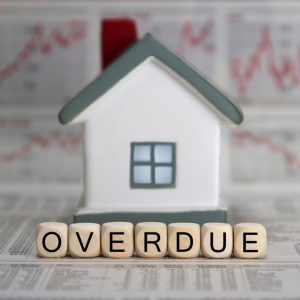
Understanding real estate transactions can be especially challenging when identifying who is responsible for each closing cost. One of the expenses that is particularly salient to buyers and sellers in Maryland is the homeowners’ association (HOA) fees. Knowing who pays the HOA fees at closing can significantly impact the deal’s profitability. This guide is designed to shed light on HOA fee obligations and clarify practical information, enabling a seamless and informed transaction for all parties concerned.
Key Highlights
- HOA fees significantly impact closing costs in Maryland real estate transactions for both buyers and sellers.
- Pro-rated HOA fees ensure fair payment responsibility based on ownership period during property exchanges.
- Sellers are typically responsible for overdue HOA fees to prevent burdening new property owners.
- HOA disclosures offer crucial insights into community rules, fees, and financial health for potential buyers.
- Negotiating fee responsibilities and reviewing HOA documents can streamline financial preparedness for buyers.
Understanding HOA Fees and Their Impact
When buying real estate in Maryland, it is helpful to understand how HOA fees are managed during the closing process, as they directly affect your overall transaction costs. HOA fees are intended to cover the maintenance of the community’s primary facilities and the services they provide. Who pays the fees in advancing HOA charges determines how equitable and transparent a closing may become. Clear expectations early in the transaction closing process protect the interests of both buyers and sellers, facilitating a dispute-free settlement and adjustment.
Pro-rated HOA fees are automatically included in the calculation of HOA fees. They are assessed in accordance with the specific day the title of the real estate is officially transferred, up to the closing date of the transaction. By sharing the duration of title ownership, vacant and borrower portions of the assessment enable each of the closing partners to obtain services and maintenance features. Knowledge of the mechanism of their computation also enables certainty in closing fees, allowing sellers and buyers to engage in confident, discretionary behaviors during closing fee negotiations at the transaction’s settlement. Having a conviction that HOA charges and applicable pro-rated fees will not exceed reasonable HOA charges in completeness enables a conscience in the transaction.
CR of Maryland I LLC provides clear guidance on HOA fee responsibilities during Maryland real estate transactions, helping buyers and sellers understand how dues and pro-rated charges are handled at closing. We also offer cash offers for properties, giving sellers a fast and convenient option when needed. By outlining who pays what—and when—we help you avoid surprises, budget accurately, and navigate the settlement process with confidence and transparency.
The Role of HOA in Maryland Real Estate
Homeowners associations (HOAs) play a central role in Maryland’s real estate landscape by managing community common areas and amenities that enhance residents’ quality of life. The elected HOA board creates and enforces community regulations, shaping everything from landscaping standards to exterior guidelines. These choices affect how much a home costs & how people interact with a neighborhood/community, so those looking to buy need to be made aware of the extent to which an HOA operates and how its HOA fees are allocated to community benefits/initiatives.
Homeowners association fees depend on the size of the community, the services a particular neighborhood offers, & how financially secure the HOA is. Fees collected monthly/quarterly/annually are intended to cover the costs of maintaining common areas, including landscaping, upkeep of community pools, & in some cases, insurance or cleaning services for these areas. Because these fees increase the overall cost of owning a home, prospective buyers should review the HOA’s financial records to ensure accurate cost forecasting.
At closing, determining who pays HOA fees can be a point of complexity. Generally, the seller is responsible for dues owed up to the closing date, though prorations may apply when fees are paid quarterly or annually. Clear communication with real estate professionals helps prevent misunderstandings and ensures a smooth transaction by preparing both parties for their respective financial obligations.
Pro-rated HOA Fees: What Buyers Need to Know

At the core of Maryland real estate transactions is a clear understanding of pro-rated HOA fees. When a home is sold, the period covered by HOA dues must be divided fairly between buyer and seller. Pro-rating ensures each party pays only for the time they own the property, supporting transparency and balanced financial practices during the exchange.
Buyers in Maryland will want to monitor how these fees are calculated at closing closely. Specifically, make sure to ask about the daily rate, how the split works, and what the HOA’s billing cycle is. This provides insight into how to avoid additional costs after the purchase and offers information on how the association may allocate its budget, which helps determine whether such fees will continue to be implemented in the future.
Another crucial component is the HOA disclosure documents. These documents specify the payments due at closing, as well as any additional fees that may become due shortly thereafter. Documents such as these are often provided to real estate agents and, to a lesser extent, attorneys, so that sufficient attention can be given to these to avoid a common frustration among Maryland buyers: having to pay fees that could have been avoided due to a simple omission.
These details empower buyers to negotiate with greater confidence and finesse and to avoid financial strain. Buyers taking proactive action—such as clarifying responsibilities, reviewing disclosures, and allocating funds for reserves—can achieve seamless transitions, underscoring the importance of strategic financial planning in facilitating real estate transactions.
Who Pays HOA Fees at Closing?
Maryland real estate transactions often involve HOA fees during closing, as they impact the final numbers that buyers, sellers, and real estate professionals work with. Each participant in the transaction must understand the fees and how they work with closing prorations that cover the time frame leading up to and immediately after closing. Customarily, sellers are required to pay any HOA fees and/or accrued dues to their associations up to closing, as they should not be allowed to leave any dues unpaid that will become the buyer’s responsibility.
In contrast, there are specific fees that buyers themselves may be responsible for, depending on the time after they have officially taken ownership of the property (e.g., move-in fees, future HOA payments). Detailing the responsibilities of each party in the transaction helps find common ground, which minimizes the likelihood of either party incurring unexpected, confusing costs. This way, the selling party in the transaction does not have to worry about HOA obligations.
If you need guidance on HOA fee responsibilities or want support navigating your Maryland real estate transaction, contact us today. We provide clear answers, simplify the process, and even offer cash offers for sellers seeking a fast and convenient closing.
Differences Between Buyer and Seller Obligations
Maryland real estate transactions necessitate understanding who pays HOA fees at closing from both the buyer’s and seller’s perspectives. HOA fees are a regular expense that is often required when closing a home, thereby affecting closing costs. As a rule, it is the seller’s responsibility to pay all HOA dues, i.e., the seller must pay all HOA dues the seller has to pay and which are owed due to the time which is owed to the home, but is due up to the time of closing to ensure the buyer is not assuming a past due balance. To avoid unexpected liabilities on the buyer’s part, the seller must pay all outstanding fees.
On the other hand, buyers are required to pay the prorated HOA fees for the period after the closing date. This guarantees that buyers only pay for the time they own the home. Buyers should request specific details on the cost proration to avoid any issues.
To ensure all obligations are adequately understood and documented, it is crucial to collaborate with real estate agents and lawyers. It is also necessary to review immigration contracts to identify any remaining financial obligations. Undoubtedly, clear communication and readiness enable all parties to determine their financial commitments, facilitating a seamless and transparent closing process that also minimizes the risk of conflicts over unpaid dues to the HOA.
Who Covers Overdue HOA Fees at HOA Closing?

Understanding who pays HOA fees is essential for both buyers and sellers. HOA fees left unpaid can cause problems if left unattended before closing. Most often, closing practices dictate that any unpaid dues owing before the sale are the seller’s responsibility. This alleviates the need to shift any financial obligations to the new owner.
A seller’s duty to ensure timely payment of the dues satisfies the requirement that buyers acquire the property with all obligations discharged. Prompt payment of the dues facilitates closing the transaction, allowing the parties to avoid all unnecessary problems and costs associated with delays, renegotiations, or even transaction adjournment. Buyers are well advised to verify that all obligations to the HOA are satisfied before closing the sale. This verification shields buyers from acquiring new, and often, legal problems.
Sellers and buyers may consider negotiating the closure of these dues as part of the closing documents; however, participants must understand the details related to the HOA and the governing documents to manage these encumbrances effectively.
To manage these encumbrances, buyers and sellers will understand the details of the governing documents, providing them with the opportunity to close without delay. That will enable the Maryland real estate market to operate smoothly and facilitate easy ownership changes.
Legal Implications of HOA Fees in Property Transfers
Considering the legal implications of HOA Fees is critical for both buyers and sellers, as well as the administrative and financial components of property transfer processes in the state of Maryland. Buyers and sellers must carefully examine the fees, as they cover the general upkeep of the property, movable reserve accounts, and maintenance of specific amenities. HOA Fees must be divided to avoid losing out on the finances. Maryland HOA statutes detail how the HOA obligations should be brought and closed, and how they impact both sides of the transaction to clarify in what amounts they are liable to the HOA for.
This knowledge is significant because the impact of the question’s answer on the closing process is considerable, as is the effect on the community’s financial viability, which is indirectly based on the investment’s economic sustainability, as well as on the community’s long-term financial stability. A thorough examination of HOA dues and disclosure policies, as well as their impact on ownership, will enable buyers and sellers to fully understand the transaction’s interplay and future obligations to the association, thereby eliminating the possibility of financial surprises.
Understanding HOA Dues and Fees in Maryland Transactions
In the realm of real estate transactions in the state of Maryland, HOA dues play a crucial role in maintaining the community’s accessible amenities, including parks, pools, and landscaping. Knowing the HOA dues plays a role in keeping the buyers and sellers from negotiating. It can be arranged on a monthly, quarterly, or yearly basis, which affects how the amount is prorated during the sale period. Typically, there is a rule requiring the seller to pay off all their dues a certain number of days before the closing date. This ensures that the buyer receives a title to the property that is clear and free from any outstanding debts or obligations, except as specified in the contract.
Buyers also need to be informed about how the prorated HOA fees work. Buyers are usually, but not limited to, only required to pay dues starting on the closing date. This also taxes HOA Dues. There is, however, a need to review the HOA’s financial records, calendars, and billing cycles to determine the amount of prorated dues owed. This ensures the buyer is confident of the amount of dues they are expected to pay upon closing.
Lenders also require knowledge of HOA dues, as they can affect loans and closings. They often want verification that all dues will be paid in full before closing. This also underscores the importance of transparent and timely communication from all parties. Informing from both the buyer and seller helps to avoid closing delays and allows a smooth transaction.
Practical Tips for Managing HOA Dues Effectively During Real Estate Transactions in Maryland
- Ensure clear communication with the HOA for accurate dues information.
- Review the HOA’s financial documents thoroughly before making any commitments.
- Discuss prorated fees during negotiation to prevent future misunderstandings.
- Confirm all dues are current before closing to avoid financial surprises.
- Coordinate with your lender to ensure compliance with all HOA-related requirements.
- Be aware of any special assessments that may impact future dues.
- Clarify the HOA’s policies and procedures regarding dues payments and disputes.
- Request a resale package with detailed information about HOA dues and rules.
- Verify the accuracy of any HOA statements provided during the transaction.
- Consult with a real estate attorney if you have any concerns about the HOA’s regulations.
These tips will help both buyers and sellers handle HOA dues smoothly and efficiently.
Must-Know Details about HOA Disclosure

The HOA disclosure is a vital document in Maryland real estate transactions, providing essential details about a community’s rules, financial status, and any outstanding dues associated with a property. Understanding its contents helps buyers make informed decisions and supports sellers in completing a smooth, compliant sale. For those considering a fast, hassle-free option, a company that buys homes in Baltimore and other cities in Maryland can also help simplify the selling process.
Firstly, covered in most residential real estate purchase agreements, the disclosure will address induced complexity, which involves reviewing association bylaws, budgets, and future expenses, as well as maintenance plans and costs such as special assessments or fee increases. An understanding of the information above helps determine the financial viability of the association and any future dues the prospective purchaser may be responsible for, as part of the purchase. It also highlights the restrictions that may govern the use or modification of the property in question.
Secondly, the completion of these information disclosure documents as fully and as accurately as possible does assist real estate sellers in protecting their interests. It becomes a means to save time in the closing process, piggybacking on the fact that the real estate seller also has the legal responsibility of fully completing the disclosure documentation. Any oversights or errors in these disclosure documents would place such a seller in a particularly challenging situation, as they would slow down or jeopardize the sale. In such circumstances, one would truly appreciate that HOA fees and obligations be well-documented and presented.
Having an attorney review a real estate transaction adds another layer of protection for both buyers and sellers. Real estate attorneys review documentation, explain the disclosures, identify potential problem areas, and delineate a client’s rights and responsibilities. This adds protection and assures the real estate transaction is within the bounds of Maryland law. With the combined transparency of the disclosure, the detailed review of the document, and legal support, the buyers and sellers will have increased confidence when answering disclosures, leading to a more seamless closing.
Navigating Closing Costs with HOA Involvement
Understanding the impact of homeowners’ association (HOA) fees on closing costs is crucial for both Maryland sellers and buyers of real estate. The community-specific HOA fees—resale package transfer fees, outstanding dues, and move-in/out fees—disparately impact closing costs. Advanced knowledge of these costs is beneficial in both surprise mitigation and budgeting for all parties.
Closing costs in Maryland also include estimates for property and lender-required expenses, as well as HOA fees, which are part of the closing costs. The general practice of sellers paying for resale paperwork while buyers are responsible for any move-in fee is significant for cost distribution during negotiations. Prompt report reviews, reasonable concession requests, and agent/title corporate collaboration all contribute positively to the closing experience.
Breakdown of Closing Costs for Buyers
For those buying real estate in Maryland, understanding what closing costs are and what they entail is absolutely vital for making this real estate journey a successful and smooth transition. Closing costs include, but are not limited to, lender charges, appraisal fees, title service costs, and Homeowner’s Association (HOA) fees. If the neighborhood has numerous amenities, the fees can be substantial. Even though closing costs are negotiable, the costs associated with the HOA, which start at closing, are expected of the buyer. An experienced real estate professional can thoroughly explain all closing costs and help ensure that no expenses are overlooked.
For all real estate transactions, there are title fees and insurance that protect and secure the buyer’s rights and ownership, which are standard costs that the buyer is responsible for. A closing disclosure is something that is tied to lenders. If the buyers are looking to make an organized budget to assist with managing what their costs will ultimately be, they can request a closing disclosure, which will help them manage their expenses.
It’s also essential to understand prorated HOA fees. Sellers typically pay dues up to the closing date, and buyers assume payments afterward, often at a prorated rate based on the remaining days in the billing cycle. Reviewing the association’s documents helps buyers avoid surprises and ensures they fully understand their obligations. By staying informed and proactive, cash house buyers in Maryland, as well as those with financing, can enter homeownership with confidence and avoid unexpected expenses.
Tips to Manage HOA Fees and Closing Costs Efficiently
In relation to closing costs, HOA fees can be burdensome, but they become more manageable when communicating with the lender and agent. To facilitate a seamless transfer of ownership, all possible HOA-related expenses must be outlined, including direct HOA fees, lien releases, and any association-related encumbrances, to ensure a smooth transition of ownership.
To complete closing documentation, it’s best to assess the HOA’s overall financial standing. This exercise in efficiency reveals potential future increases in obligations or dues. Financial documentation, along with budgets and reserves, must be requested in advance for adequate review, which the agent should facilitate, to empower the most informed decision.
By discussing potential expenses associated with closing and the home at the time of purchase, i.e., HOA costs, buyers can negotiate certain expense ownership with the seller. Given buyers’ costs, expenses with the HOA, and the urgency that a seller may experience in a buyers’ market, decreased purchase expenses and finalizing home-selling expenses may lead a seller to agree to covering portions of the closing fees.
Home mortgage loans require the buyer to willfully and legally bind themselves to a contract for the purchase of a home. Buyers can gain leverage by having a buyer-requested closing costs summary disclosure statement included in the mortgage home buyer’s closing expense book, along with mediation services, before the closing date to bind the contract to the home. With self-service and peace of mind, the buyer can then free themselves of any mortgage tether and apply to become the occupant of the house.
| Key Components | Strategies | Benefits |
|---|---|---|
| Closing Costs | Request a detailed estimate from your lender early in the process to avoid surprises. | Provides clarity on the total amount needed to finalize the purchase, aiding in budgeting. |
| HOA Fees | Review the HOA documents thoroughly to understand the fee structure and the coverage provided. | Ensures awareness of ongoing costs, helping avoid unexpected financial strain. |
| Transfer Taxes | Understand your responsibility for state and local transfer taxes to prepare accordingly. | Prevents last-minute financial setbacks and aids in accurate cost estimation. |
| Title Insurance | Shop around for competitive rates on title insurance to secure the best deal. | Protects your investment against potential legal disputes related to property ownership. |
This table encapsulates the essential components of navigating closing costs and HOA fees, offering a clear overview for better financial planning and decision-making.
In conclusion, understanding who is responsible for HOA fees at closing in Maryland is crucial for both buyers and sellers. Typically negotiated within the purchase agreement, these fees can significantly impact the final settlement costs. Both parties should collaborate closely with real estate professionals to ensure clarity and fairness in the division of responsibilities. Whether you’re buying or selling, clear communication and thorough negotiations can lead to a smoother transaction. For further guidance, consider downloading our comprehensive guide on real estate transactions in Maryland.
FAQs:
Who is responsible for paying HOA fees at closing in Maryland?
In Maryland, sellers typically cover overdue HOA fees up to the closing date to prevent burdening new owners. Buyers are expected to cover the pro-rated share of HOA fees from the closing date onward.
What are pro-rated HOA fees, and how do they affect real estate transactions?
Pro-rated HOA fees are calculated based on the portion of the ownership period that falls within the HOA billing cycle. They ensure fair cost distribution between buyers and sellers, which impacts the final calculations at property closing.
What should buyers review about HOA disclosures before closing?
Buyers should review HOA disclosures to understand community rules, financial health, and any outstanding dues or future fee changes. This review helps avoid unexpected costs and supports informed decision-making.
How can understanding HOA operations benefit potential buyers?
Understanding HOA operations helps buyers assess community maintenance, future investments, and the impact on property value. It supports strategic planning and smooth property ownership transitions.
What role do real estate professionals play in managing HOA fee responsibilities?
Real estate professionals help clarify HOA fee responsibilities, negotiate cost allocations, and review legal documents to ensure transparency and accuracy. Their guidance ensures clarity, preventing disputes and facilitating smooth transactions.
Need to sell your house fast? Whether you want to avoid repairs or prefer a hassle-free sale, CR of Maryland I LLC can help. We offer fair cash offers and handle all the details for a smooth process. Have questions or ready to start? Call us at (443) 278-2743 for a no-obligation offer.
Helpful Maryland Blog Articles
- Who Pays the HOA Fees at Closing in Maryland
- Can the Seller Back Out of a Contract in Maryland
- How to Do a Sale by Owner in Maryland
- Can You Sell Your House to the Bank in Maryland?
- How to Sell a Hoarder House in Maryland
- Divorce Home Appraisal in Maryland
- How to Sell a House with a Code Violation in Maryland
- How to Avoid Closing Costs in Maryland
- Selling Rental Property at a Loss in Maryland
- How to Sell a House With Termites in Maryland
